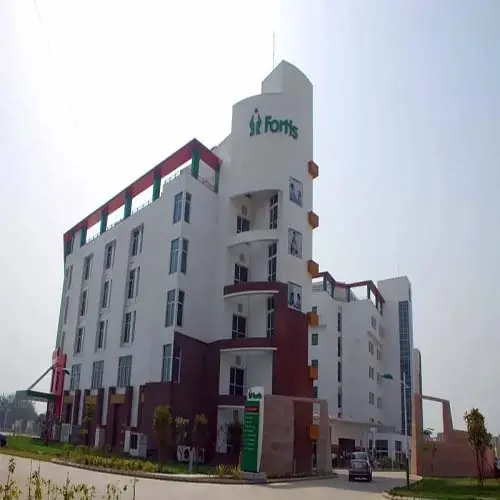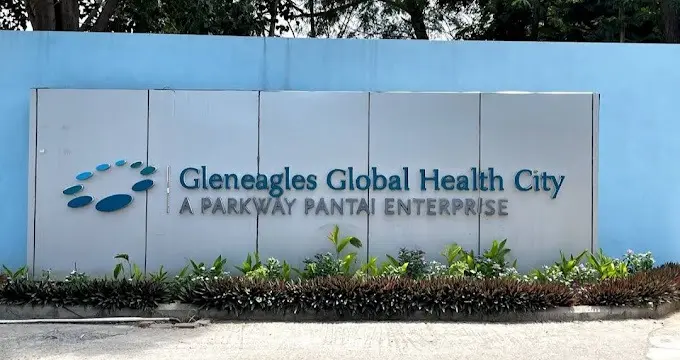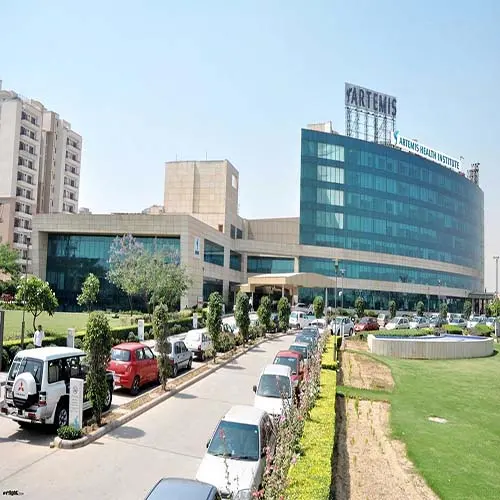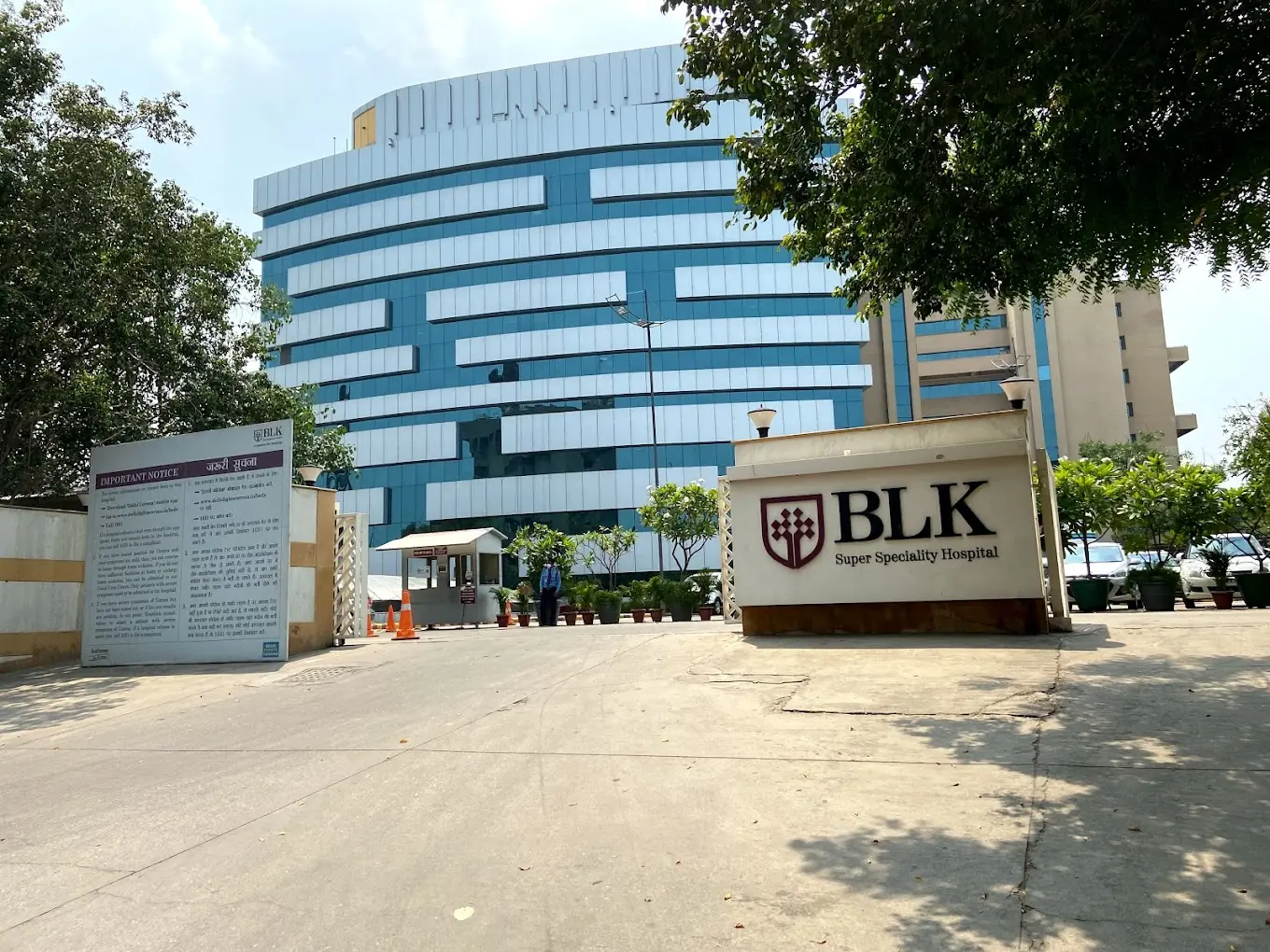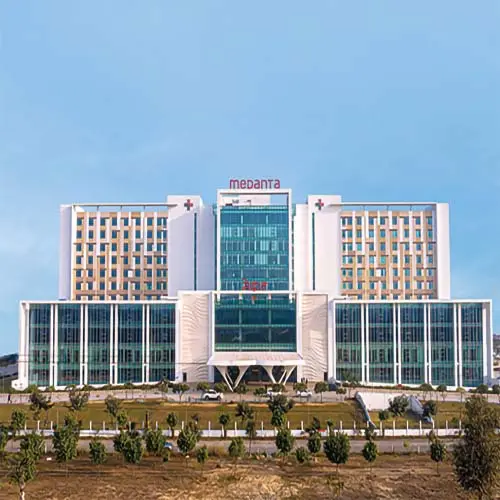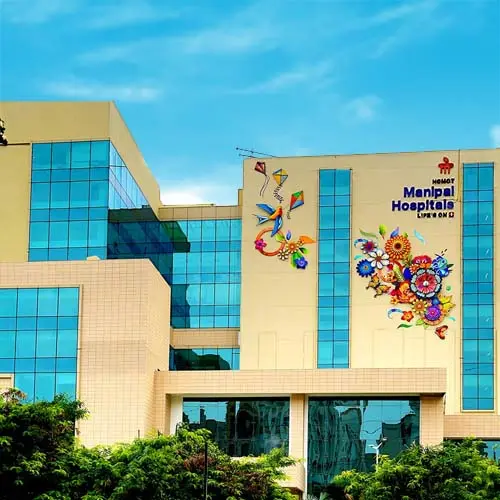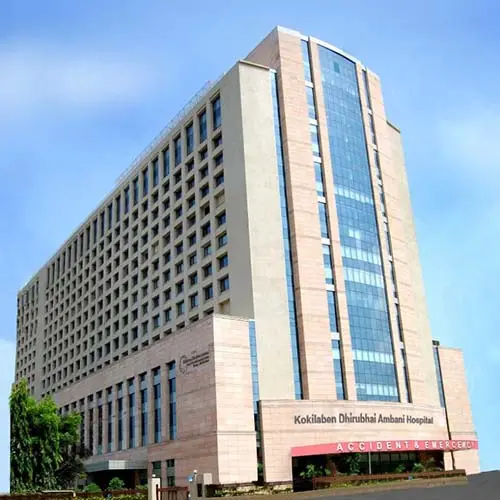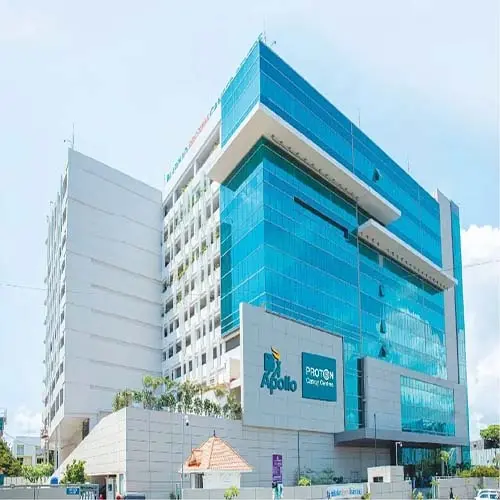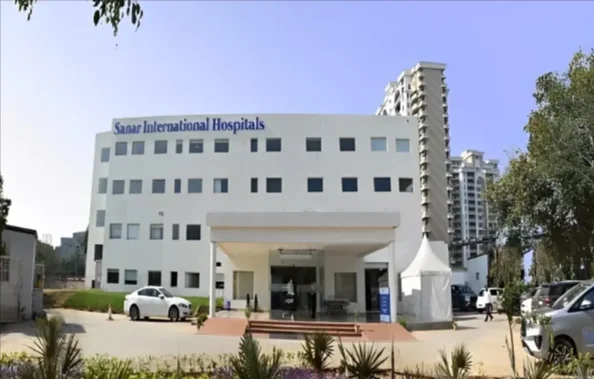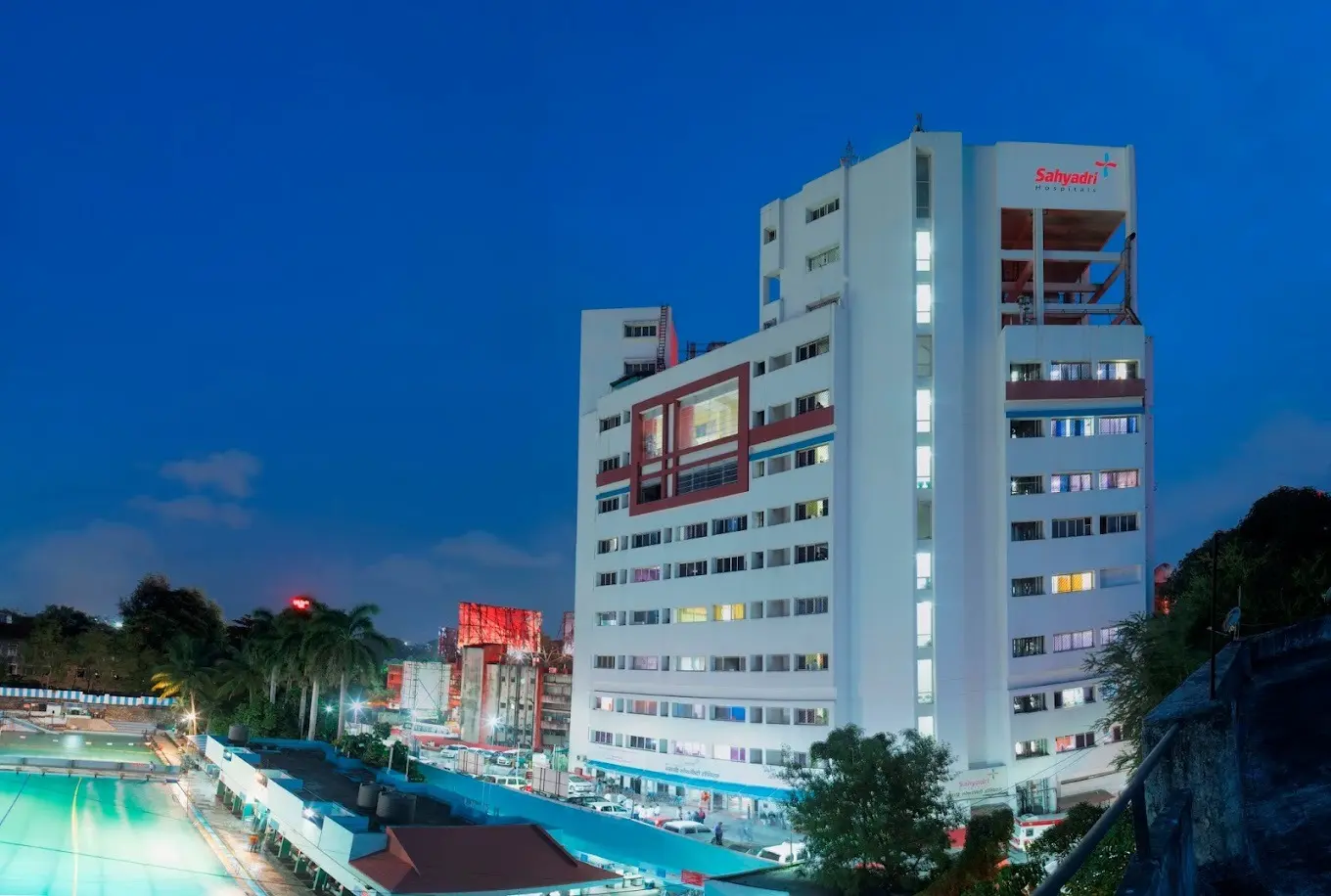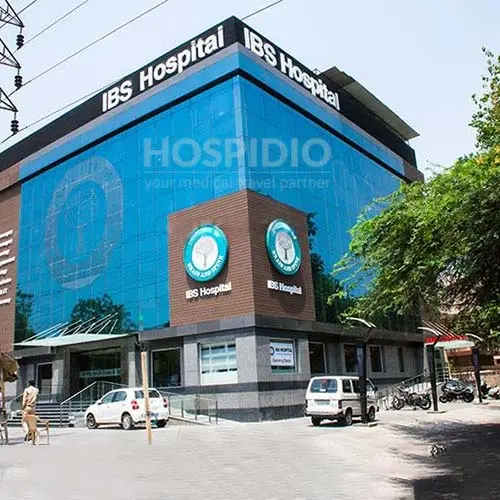

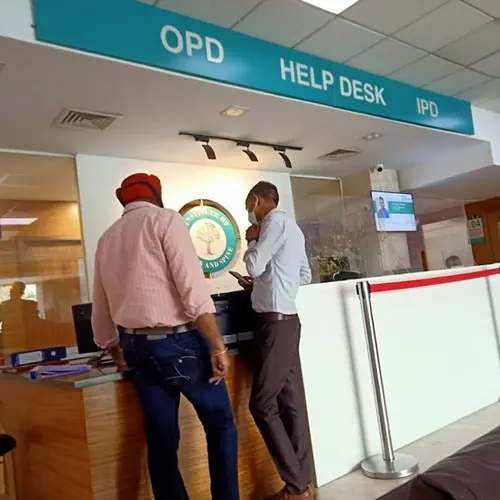
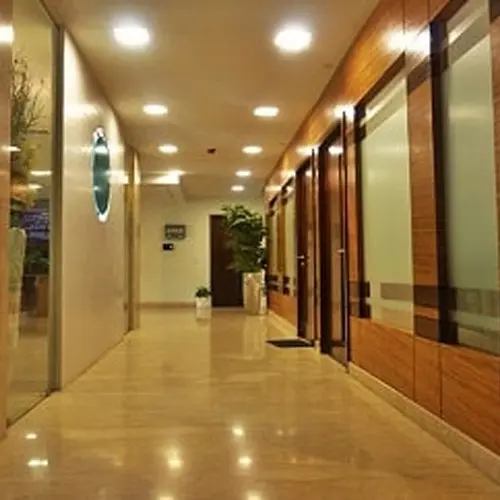
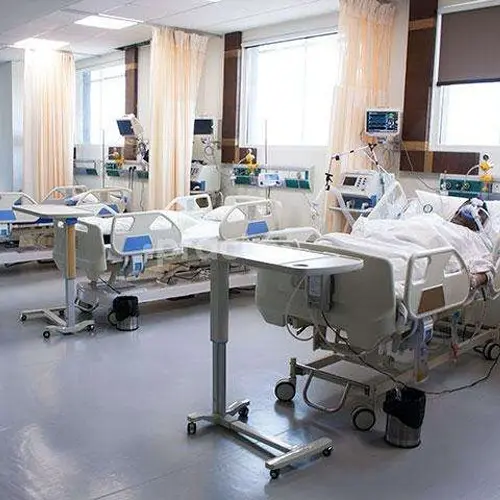
Institute Of Brain and Spine, New Delhi
New Delhi, IndiaAbout Hospital
IBS Hospital is a premier healthcare institution specializing in advanced neurology, neurosurgery, and spine care. Located in the heart of New Delhi, India, IBS Hospital is recognized for its cutting-edge medical technology and its team of highly skilled specialists who are committed to providing exceptional patient care.
The hospital has established itself as a leading center for treating complex neurological and spinal disorders, offering a comprehensive range of services that include diagnosis, treatment, rehabilitation, and post-operative care. The facility is equipped with state-of-the-art infrastructure, including advanced imaging technologies, robotic surgery systems, and minimally invasive surgical techniques, ensuring that patients receive the most precise and effective treatments available.
IBS Hospital is known for its multidisciplinary approach to patient care, where neurologists, neurosurgeons, spine specialists, and rehabilitation experts work collaboratively to develop personalized treatment plans. This approach not only addresses the immediate medical needs of patients but also focuses on long-term recovery and quality of life.
In addition to its clinical excellence, IBS Hospital places a strong emphasis on patient safety, comfort, and satisfaction. The hospital's environment is designed to promote healing, with modern facilities, dedicated care teams, and a patient-centered philosophy that ensures compassionate care at every stage of treatment.
IBS Hospital is also committed to medical research and education, contributing to advancements in neurological and spinal healthcare. Through its continuous efforts in innovation and patient care, IBS Hospital has earned a reputation as a trusted healthcare destination for patients both in India and around the world.
Hospital Location
3, Ring Rd, South Extension I, Lajpat Nagar III, Lajpat Nagar, New Delhi, Delhi
Nearby facilities:
Metro Station - Vinoba Puri, 6 min walk away, Lajpat Nagar Metro, 14 min walk away
Airport - Indira Gandhi International Airport, 33 min drive away (14.3 km)
Hotels - Jagannath B&B Hotel (680m), Hotel Gianmala Residency (320m), South ex Golden (580m)
Hospital Infrastructure
IBS Hospital consistently integrates the latest cutting-edge technologies from around the globe into its medical services. The hospital employs advanced surgical systems that enable precise and confident execution of complex procedures. Magnetic stimulation is utilized to treat specific neurological conditions, while personalized brain mapping is conducted to develop tailored treatment plans for each patient. Nerve monitoring during surgeries is implemented to safeguard the nervous system, and a robotic exoskeleton is used to address mobility issues. IBS Hospital remains committed to delivering the highest standard of care by leveraging the most innovative technologies available.
| Robotic Surgery Systems: For precision in neurosurgery and spine surgery. | Advanced Imaging Technologies: | MRI (Magnetic Resonance Imaging) |
| CT (Computed Tomography) Scans | Digital X-rays | Functional MRI (fMRI) |
| Intraoperative Navigation: For enhanced accuracy during surgeries. | Endoscopic Surgery: Minimally invasive techniques for neurosurgery and spine procedures. | Neuronavigation Systems: For real-time guidance in complex brain and spine surgeries. |
| Neurophysiological Monitoring: For continuous monitoring of neurological function during surgery. | Gamma Knife: For non-invasive treatment of brain tumors and other neurological conditions. | Advanced Rehabilitation Equipment: For post-operative recovery and physical therapy. |
| 3D Printing Technology: For customized surgical planning and implants. | Artificial Intelligence (AI) and Machine Learning: Integrated into diagnostics and treatment planning. |
IBS Hospital remains dedicated to advancing patient care through the continuous adoption of the latest and most innovative technologies. By staying at the forefront of medical advancements, the hospital ensures that every patient receives the most precise, effective, and personalized treatment possible. This commitment to technological excellence is central to IBS Hospital's mission of providing world-class healthcare.
Get a free cost estimate
Hospital Facilities
The Institute of Brain and Spine (IBS) in New Delhi is a specialized center dedicated to the diagnosis, treatment, and rehabilitation of neurological and spinal disorders.
- Advanced Neuroimaging Facilities: MRI, CT scans, and PET scans for accurate diagnosis of neurological conditions.
- Neurosurgical Operating Theaters: Equipped with the latest technology, including neuronavigation and intraoperative imaging.
- Neurointensive Care Unit (NICU): Specialized care for patients with critical neurological conditions, staffed by trained neurointensivists.
- Minimally Invasive Spine Surgery: Advanced techniques for treating spinal disorders with reduced recovery time.
- Comprehensive Rehabilitation Services: Physiotherapy, occupational therapy, and speech therapy for post-operative recovery.
- Dedicated Epilepsy Center: Offers comprehensive care, including video EEG monitoring and surgical interventions for epilepsy.
- Stroke Management Services: 24/7 stroke unit with thrombolysis and endovascular treatment options.
- Movement Disorder Clinic: Specialized in treating Parkinson's disease and other movement disorders with both medical and surgical interventions.
- Pediatric Neurology Department: Focused care for neurological disorders in children, including congenital and developmental conditions.
- Pain Management Services: Advanced techniques for managing chronic pain associated with neurological and spinal conditions.
The Institute of Brain and Spine in New Delhi is recognized for its multidisciplinary approach, combining neurology, neurosurgery, and spine care under one roof. The institute is known for its commitment to providing high-quality care through advanced technology and a skilled team of specialists.
Specialities
The Institute of Brain and Spine (IBS) in New Delhi is renowned for its comprehensive range of specialties, focusing on the diagnosis, treatment, and management of complex neurological and spinal conditions.
Neurology Department
At the prestigious Neurology Department of IBS Hospital in Delhi, the expert neurologists deliver exceptional care through a combination of advanced diagnostics and compassionate support. The department stands out for its specialized expertise, ensuring accurate assessments and personalized treatment plans tailored to each patient's needs. With a focus on comprehensive rehabilitation services, the team is dedicated to promoting recovery and enhancing the well-being of every patient.
The neurologists at IBS Hospital are highly trusted for their ability to manage acute neuro-emergencies, diagnose complex neurological conditions using cutting-edge screenings and imaging, and provide critical care for patients with severe traumas. They employ multimodality neuro-monitoring to ensure precise treatment outcomes and efficiently triage patients based on their specific needs, reinforcing the hospital's commitment to delivering the best neurology care in Delhi.
Spine Surgery
Minimally invasive spine surgery (MISS) at IBS Hospital in Delhi is performed by a team of experienced spine surgeons who utilize advanced technology and innovative techniques to address back and neck pain resulting from various spinal disorders. This approach involves smaller incisions, leading to quicker recovery, reduced post-operative pain, and shorter hospital stays.
For patients with scoliosis, particularly those with a curve exceeding 45 to 50 degrees, the spine surgeons at IBS may recommend surgery. The decision to proceed with surgery is influenced by several factors, with the most common procedure being spinal fusion. This surgery fuses the curved vertebrae, preventing the curve from worsening and promoting healing.
MISS offers numerous benefits, including faster recovery times, less anesthesia, reduced blood loss, smaller incisions, and minimal scarring. The procedure also results in less soft tissue and muscle damage, lowering the risk of infection. Additionally, it effectively treats symptoms like tremors and rigidity, reduces dyskinesia and fluctuations, and often decreases the need for medication, significantly improving the quality of life and daily functioning for patients.
Patients can trust the expertise of the spine surgeons at IBS Hospital in Delhi to provide comprehensive care, helping them achieve a pain-free and active lifestyle.
Orthopaedics Department
The Orthopaedics Department at IBS Hospital is widely recognized for its exceptional care of musculoskeletal conditions, ranging from simple sprains to complex joint replacements. Equipped with advanced facilities and staffed by expert teams, the department is capable of managing all types of orthopedic cases with precision and care. Their comprehensive approach includes not only cutting-edge treatment but also intensive care and rehabilitation, reinforcing their position as pioneers in orthopedic care.
The department excels in the expert assessment and management of acute orthopedic conditions, employing a variety of diagnostic tools to address even the most complex problems. Personalized treatment plans are carefully crafted to meet the unique needs of each patient, ensuring the highest level of care. With 24/7 critical care services available for trauma and emergencies, the team is always prepared to respond to urgent situations. Additionally, specialized triaging based on patient symptoms ensures that care is both timely and effective. The department is particularly noted for its comprehensive care in knee replacement procedures, consistently setting new standards in patient care and outcomes.
- Neuro-Oncology
- Neurocritical Care
- Pain Management
- Pediatric Neurosurgery
- Neuro-Rehabilitation
- Epilepsy Clinic
- Stroke Clinic
- Movement Disorders Clinic
The Institute of Brain and Spine in New Delhi is dedicated to providing top-tier care through its specialized services, advanced technology, and multidisciplinary approach, making it a leading center for neurological and spinal care in the region.
Top Doctors in Institute of Brain and Spine
- Dr. Dewaker Sharma,Endoscopic Brain and Spine surgeries,Senior Consultant Neurosurgery
- Dr. Gaurav Sharma,Senior Sports Physiotherapist
- Dr. Ankush Arora,Anaesthetist
- Dr. Pankaj Bajaj ,orthopedic surgery and joint replacement,HOD orthopedic
Procedure Performed
At the Institute of Brain and Spine (IBS) in New Delhi, a range of advanced procedures is offered to address complex neurological and spinal conditions. These include cutting-edge brain and spinal surgeries, minimally invasive techniques, neurovascular interventions, and specialized treatments for movement disorders and epilepsy. With a focus on precision and innovation, IBS provides comprehensive care through state-of-the-art technology and expert clinical practice.
Endoscopic Brain Surgery
At IBS Hospital, Endoscopic Brain Surgery marks a significant advancement in neurosurgical precision and patient care. This minimally invasive technique allows skilled surgeons to address complex brain conditions with remarkable accuracy, enhancing recovery and reducing risks. By employing specialized equipment known as an endoscope—a narrow, flexible tube with a camera—surgeons can obtain real-time, magnified images of the surgical site. This enables precise navigation and treatment of brain tumors and lesions in challenging locations.
Endoscopic brain surgeries are particularly effective for conditions such as:
Hydrocephalus: The abnormal accumulation of cerebrospinal fluid in the brain's ventricles, which can be managed by implanting a shunt to drain the fluid.
Tumors: Both malignant and benign tumors located in various parts of the skull can be removed with high precision using this technique.
Cysts and Cystic Lesions: Fluid-filled lesions that obstruct cerebrospinal fluid flow can be treated to alleviate symptoms and prevent complications.
Intraventricular Lesions: Tumors and cysts within the brain's ventricles can be assessed and treated without the need for open surgery.
Biopsies: Tissue samples can be safely collected from various brain areas for diagnosis of malignancies.
Arteriovenous Malformations (AVMs): Abnormal blood vessel connections can be identified and treated with minimal invasion.
Through these advanced endoscopic techniques, IBS Hospital redefines excellence in neurosurgery, offering patients a safer, more effective treatment option for intricate brain conditions.
Colloid Cysts
IBS Hospital provides cutting-edge treatment for colloid cysts, leveraging the latest surgical technologies to deliver exceptional care. The dedicated neurosurgeons at IBS focus on minimally invasive procedures to ensure the best outcomes and expedite recovery for patients.
A colloid cyst is a non-cancerous, fluid-filled mass that typically forms in or near the anterior third ventricle of the brain. This cyst contains a protein-rich fluid composed of mucin, old blood, cholesterol, and ions. It can obstruct the normal flow of cerebrospinal fluid, making up 15 to 20 percent of all ventricular cysts, though it represents only about 2 percent of brain tumors. Colloid cysts are rare and primarily affect adults in their 40s and 50s.
While many individuals with a colloid cyst may not experience noticeable symptoms, issues typically arise when intracranial pressure increases due to disrupted cerebrospinal fluid flow. Symptoms can include severe headaches, especially those worsening in the morning, nausea, vomiting, blurred vision, personality changes, memory loss, and double vision.
At IBS Hospital, treatment options for colloid cysts include:
Drainage of Cerebrospinal Fluid: To alleviate intracranial pressure and relieve symptoms.
Surgical Removal: Performed either through neuro-endoscopy or advanced microsurgical techniques, tailored to the individual’s condition.
Through these advanced approaches, IBS Hospital aims to provide effective and personalized care for patients with colloid cysts.
Hip Replacement
Hip replacement surgery at IBS Hospital is designed to address significant hip joint deterioration by replacing damaged joint components with artificial prosthetic parts that mimic the original joint structure. This procedure is typically recommended for patients experiencing severe, unmanageable hip pain and ineffective symptom relief. It involves the careful removal of the damaged joint, reshaping the acetabulum and femoral ends, and securing the prosthetic components with medical cement.
Patients usually present with symptoms such as severe hip pain, worsening discomfort over time, increased pain with physical activity, and reduced functional capacity affecting their quality of life. These issues often result from aging, degenerative joint disorders, or previous injuries.
Prior to surgery, a thorough medical evaluation helps in creating a tailored treatment plan, including a briefing on the procedure and preparation instructions. It's important to disclose any medication history for potential adjustments.
On the day of surgery, a nurse will assist with check-in, and the surgical team will be introduced. The surgery, performed under anesthesia, typically lasts one to two hours depending on the extent of damage. Post-operative care includes recovery in an observation room, pain management with prescribed medications, and prevention of complications. Most patients are discharged within one to two days, with immediate physiotherapy to support quick recovery and prevent clots.
Upon discharge, patients receive detailed guidelines for home care, including medication, activity levels, wound care, and diet, along with scheduled follow-ups to monitor progress. Ongoing communication with the doctor and regular check-ups ensure a smooth and successful recovery.
| Craniotomy | Awake Brain Surgery | Spinal Fusion |
| Discectomy | Laminectomy | Vertebroplasty/Kyphoplasty |
| Microdiscectomy | Minimally Invasive Spinal Decompression | Percutaneous Spinal Fusion |
| Endovascular Coiling | Carotid Endarterectomy | Arteriovenous Malformation (AVM) Surgery |
| Deep Brain Stimulation (DBS) | Thalamotomy | Temporal Lobectomy |
| Vagus Nerve Stimulation (VNS) | Laser Ablation Surgery | Spina Bifida Repair |
| Hydrocephalus Shunting | Spinal Cord Stimulation (SCS) | Nerve Blocks |
| Radiofrequency Ablation (RFA) | Botox Injections for Spasticity | Physical and Occupational Therapy |
| Cerebral Angiography | Thrombolysis | Balloon Kyphoplasty |
These procedures at IBS are performed by a highly skilled team of neurosurgeons, neurologists, and spine specialists, utilizing state-of-the-art technology and techniques to ensure the best possible outcomes for patients.

